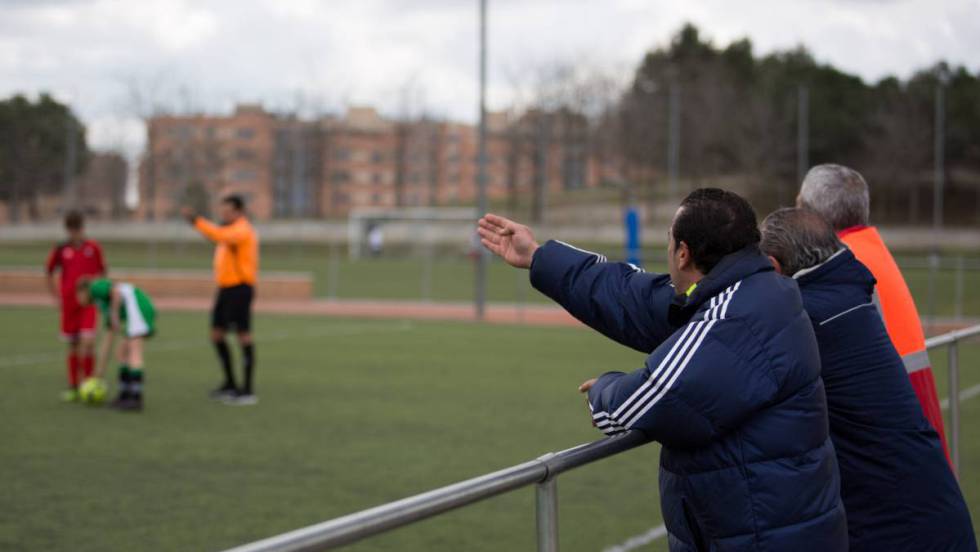How to Support Your Child and Allow the Coaches to Do Their Job
Good parents, out of an abundance of love, strive to be somewhat involved in their child’s sporting performance. This is permissible and desirable as it is reasonable to be attentive to your child’s daily drills, because of your age and experience. But attention, while harmless, should be sufficiently constrained so it does not become stifling control. Your child’s performance in soccer involves four main people: child, coach, teammates, and you. Are you comfortable in the knowledge that you are probably the least important of these? Let’s discuss your role vs the role of the coach.
Your Role
To the extent that you are not a former player or coach yourself, it is important for your child’s progress and happiness that you do not impose your views into their appreciation of and approach to the game. The first duty of a parent is to love unconditionally and, rest assured, this is very important to an athlete. Your child will always need this support, in the form of driving them to games, being on the sidelines with his teammates’ parents, providing for an extra pair of cleats and being as attentive as possible when they rave about good days or wish to vent on bad days. Through these moments, a parent shows their commitment to seeing the child reach their highest potential, and while these are acts of motivation in themselves, there will be opportunities for cheering them on before, during, and after play.
There is a big difference between doing these invaluable things and telling your child how to shoot, pass or the need to dribble less. Leaping unto the turf to take the tactical playbook crosses a line that may be detrimental to a child’s performance. Like the separation of church and state, parent’s responsibilities for their soccer child are not the same as those of the coach even if it is tempting to see overlaps sometimes.
The Role of the Coach
A coach is more than just a thrower of buzz motivational words. From a vantage point not available to parents, he observes and guides the child on at least two perspectives of their ability: the child’s talents on the field and the child’s ability relative to teammates (on his or her leadership, teamwork, etc). Because the coach has access to more than just one child, he has a larger pool of ideas and talking points to exchange with a child, compared to the parent of just one (or two) members of the team.
Working with a coach on technical and tactical matters gives children a sense of accountability and responsibility. A coach will issue instructions that he or she expects to be obeyed, with some form of disciplinary consequence for negligence. With this in mind, a young player who knows there is no reason for a coach to show special favours works hard to be in the coach’s good book by putting in the required level of work. A competitive environment where teammates are also trying to meet a coach’s expectation pushes a player to make a name for himself. Surely, this is one of many skills learned in the game that come handy in workplaces outside sports. Remember, you chose this coach for a reason and should trust him to do a good job. There would certainly be no point in paying to enroll your child with a coach only to regularly undermine his ability to do what you have asked. It is counterproductive and may lead to a decline in the coach’s interest in your child beyond the current year. Worse, frequent interventions could sharply take the wind out of the child’s sails. Enthusiasm fades when it seems you will always have your way.
Conclusion
Nothing should be of greater joy to a parent than to see a child happy working with a coach. Many valuable competencies are being gained which will prove useful on game days, or in future work and life relationships. A helpful reminder for striking a balance: Don’t parent when you coach and don’t coach at home when you’re supposed to be parenting. It is a coach’s job to stir competition, but a parent compliments the child’s passion. The coach demands work and discipline, while a parent enquires about improvement and satisfaction. Setting targets and forming expectations are domains outside of your jurisdiction as a parent; providing a mentally healthy environment is the uber-important duty to focus on.
References
1. How To Become A Better Sports Parent: Stop Caring
2. My Son Is The New Messi – A Quick Guide For Soccer Parents
http://blog.fieldoo.com/2016/01/my-son-is-the-new-messi-a-quick-guide-for-soccer-parents/
3. Five mistakes soccer parents make with their players https://www.soccerwire.com/blog-posts/five-mistakes-soccer-parents-make-with-their-players/
4. 13 Steps to Being a Winning Parent https://www.competitivedge.com/parentscoaches-guides-13-steps-being-winning-parent



